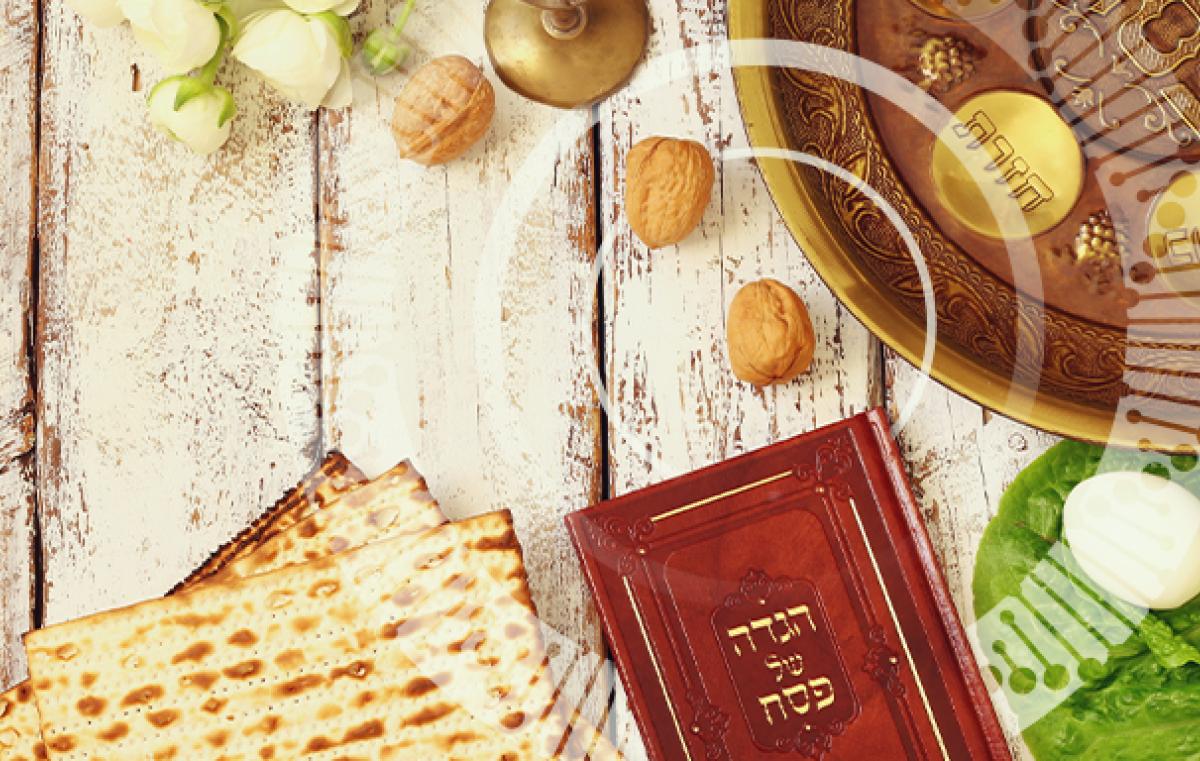The Passover Seder
What is it about the Seder night that unites the entire family around the table, year after year? And what makes Pesach the most popular Jewish holiday?

Rabbi Chaim Navon of the Midrasha, at BIU’s Jesselson Institute for Advanced Torah Studies, writes about Passover’s uniqueness.
The German-Jewish philosopher Hugo Bergmann, a classmate of the writer Franz Kafka, related a story from their shared youth. In 1901 Kafka was a socialist, and opposed religion. He tried to convince his friend Hugo to leave his faith. Hugo Bergman was greatly influenced by Kafka's arguments; but, in his words, "I wholeheartedly loved the Seder night, the customs of my father, the preparations for the holiday ... One prayer was in my heart: I wished that I would remain faithful to Judaism at least until the Seder night. And my prayer was answered" (Ba-Mish'ol, p. 23).
What was it about the Seder night, that pulled on the heartstrings of the young intellectual, Hugo Bergmann? What motivates an overwhelming majority of Israelis to celebrate Seder night? It seems to me that one of the answers involves an activity that is the evening’s focus: "And you shall tell your child." On Passover, and particularly on the Seder night, the emphasis is on the family tradition, the Hagaddah, the father telling his children the Exodus story. This intergenerational connection, which is so absent in daily life in contemporary society, may be responsible for some of Passover’s special magic.
The mitzvah to recount the story of the exodus from Egypt is done via questions and answers. The children ask the “Ma Nishtana” (why is this night different from all others), and add their own queries, and the parents reply. Why? Rabbi Tzvi Elimelech Shapira explains in his work, “Derekh Pikudekha”, that a child will listen more attentively to a story when he seeks answers to questions that challenge him. The mitzvah to tell the story of the Exodus from Egypt via questions and answers guides us toward a particular educational path: dialogue. And here we have the family relationship as Pesach shapes it: on the one hand, an attitude of respect and admiration on the part of the children toward their parents. On the other hand, an attitude of dialogue and listening on the part of the parents towards their children.
Passover is not a simple and easy holiday like Purim or Hanukkah. It requires a lot of effort: the cleaning, the cooking, the long and tiring Seder night. But Passover is the most celebrated holiday. This is an important educational and cultural lesson. We all have a tendency to pursue the easy and enjoyable, and reject the difficult and demanding. The Torah challenges this tendency on many fronts. From Passover we learn that trying to avoid exerting an effort is just not worth it: in the end, the most demanding holiday is also the most celebrated festival, the one with the highest ratings.